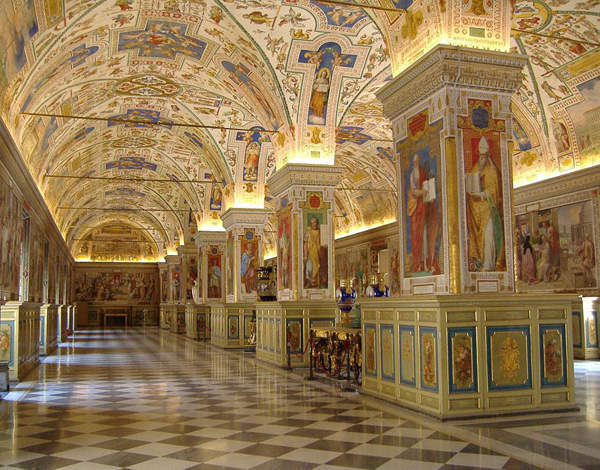

Devotion to the Christian faith and a life of opulence and luxury don’t appear to be a perfect pairing. Indeed Christianity, in a similar way to other religions, has long extolled the virtues of giving to others rather than amassing wealth for the benefit of you, and you alone. But is it possible to be significantly wealthy and be a good Christian?
The central (mortal) figure of the faith, Jesus, was a poor man, and devoted his entire life to helping others – he healed them, turned water into wine and fed the 4,000 by multiplying bread and fish (admittedly he could summon up surplus supplies at the click of his fingers) and then he made the ultimate gift by sacrificing his mortal life in exchange for the forgiveness of mankind’s sins. He was the ultimate example of selflessness, charity and distance from material wealth that the religion promotes.
Just over 2,000 years later, however, the reality is that the majority of Christian religious institutions are abundantly wealthy. The Vatican, for instance, is a hugely wealthy organisation. The Vatican Bank oversees about 7.1 billion euros in untaxed assets, although since much of its dealings are shrouded in mystery – and never far away from scandal and reports of shady goings-on – many believe that the Vatican’s wealth could be considerably more than that.
Given the morally questionable coupling of opulence and Christianity, it is hardly surprising that cases of financial indulgence by key figures within the faith tend to provoke public outrage. Indeed there was much furore just recently over the so-called ‘Bishop of Bling’ Franz-Peter Tebartz-van Elst, who was suspended from his German diocese of Limburg after racking up a 30 million euro bill for new church headquarters.

Pictured above: The Vatican Museum
This tale of extravagance within the Catholic Church was swiftly followed by the story of six evangelical pastors from California, the stars of a new reality TV show who believe financial wealth is a blessing from God. In the wake of the Tebartz-van Elst fiasco, these preachers of prosperity were dubbed ‘the real bishops of bling’ in an article by The Telegraph.
But while the opulent mansions, beautiful women and flashy sports that the preachers enjoy in one of America’s most lavish states may appear more extravagant than a few renovation projects in a relatively obscure German town, the £12,000 bathtub that the bishop allegedly commissioned – which one can only imagine was diamond-encrusted – surely puts him in the running for the title as well.
All this preoccupation with luxury is certainly at odds with the ‘church of the poor’ and divestment from worldliness philosophy recently promoted by Pope Francis I. However, the possession of wealth does not necessarily represent a moral dilemma for the religion, since the Christian tradition is not anti money per se – it is excess and luxury that pose the spiritual problems. In fact, the Catholic Church, Church of England and other Christian branches, and indeed other religions, would struggle to do much good for those in need if their coffers were empty.
What’s more, many of Jesus’ disciples were considerably wealthy – Abraham was a very rich man, David died ‘full of riches’ and Solomon was said to surpass all other kings of the earth in riches and wisdom. In fact, wealth is very often associated with prosperity and wisdom in the Bible, as opposed to improper or immoral.
It seems that being a good Christian requires a fine balancing act of moderation – having enough money to be able to help others and do good, while not being tempted to indulge yourself to the exclusion of others. So the question is, are you able to resist the pull of a guilded bathplug?






